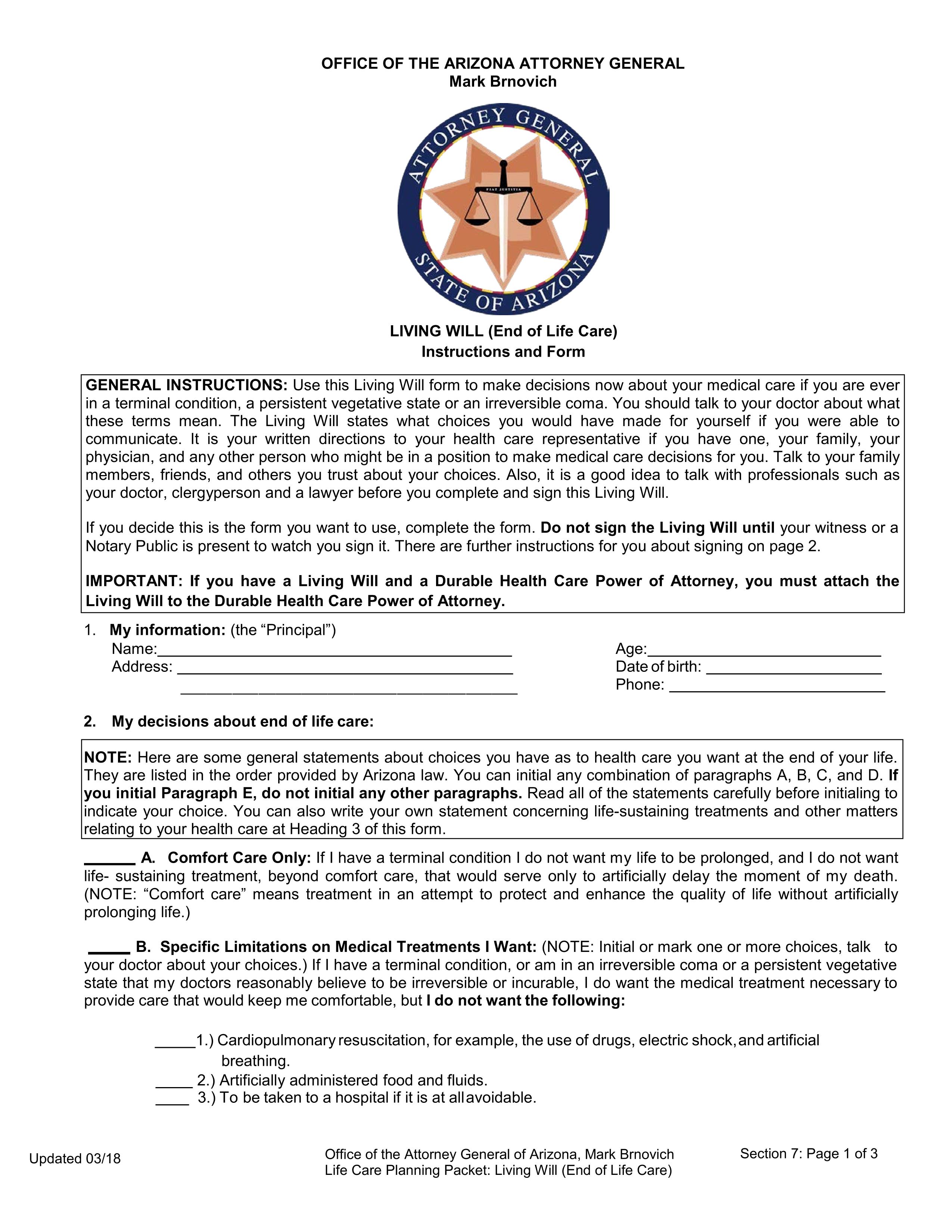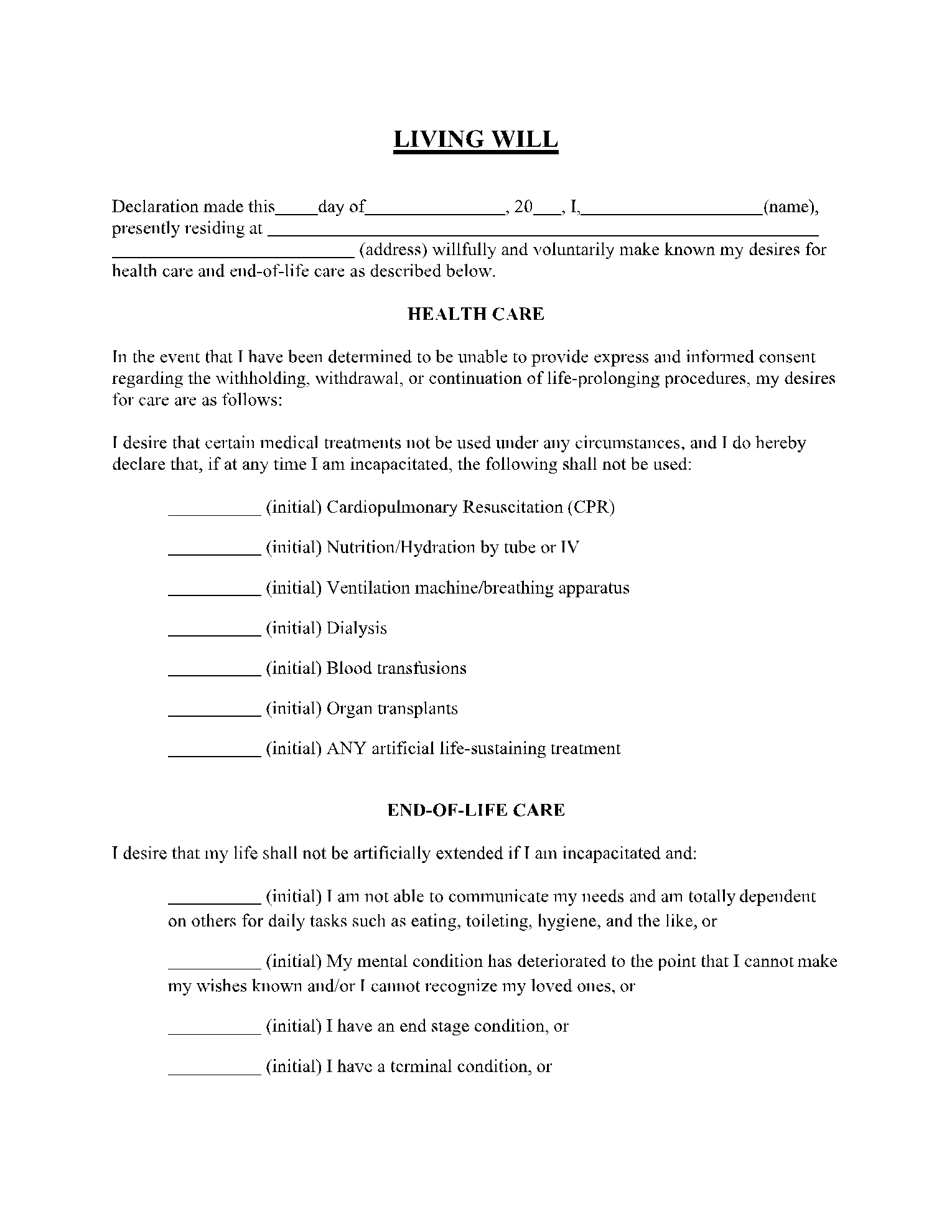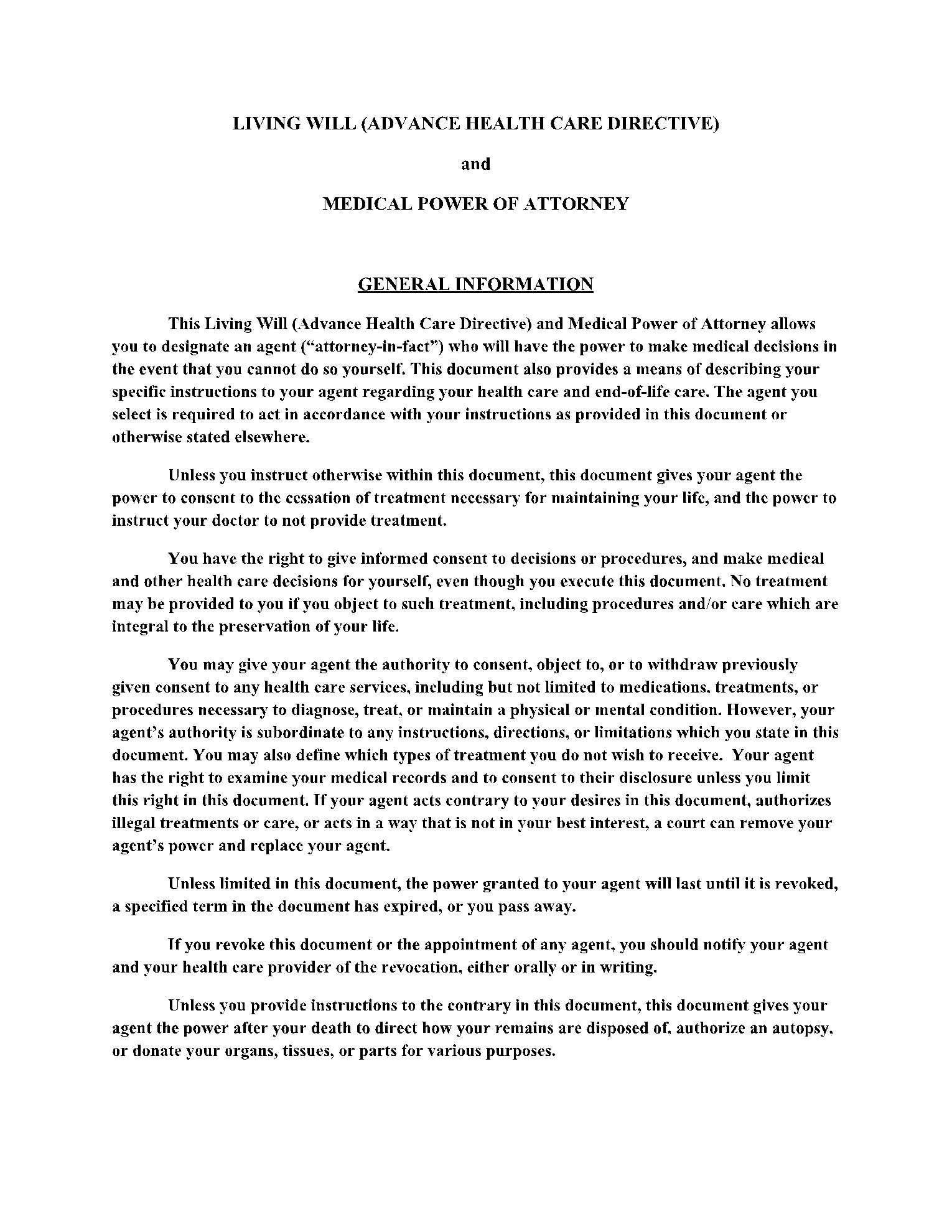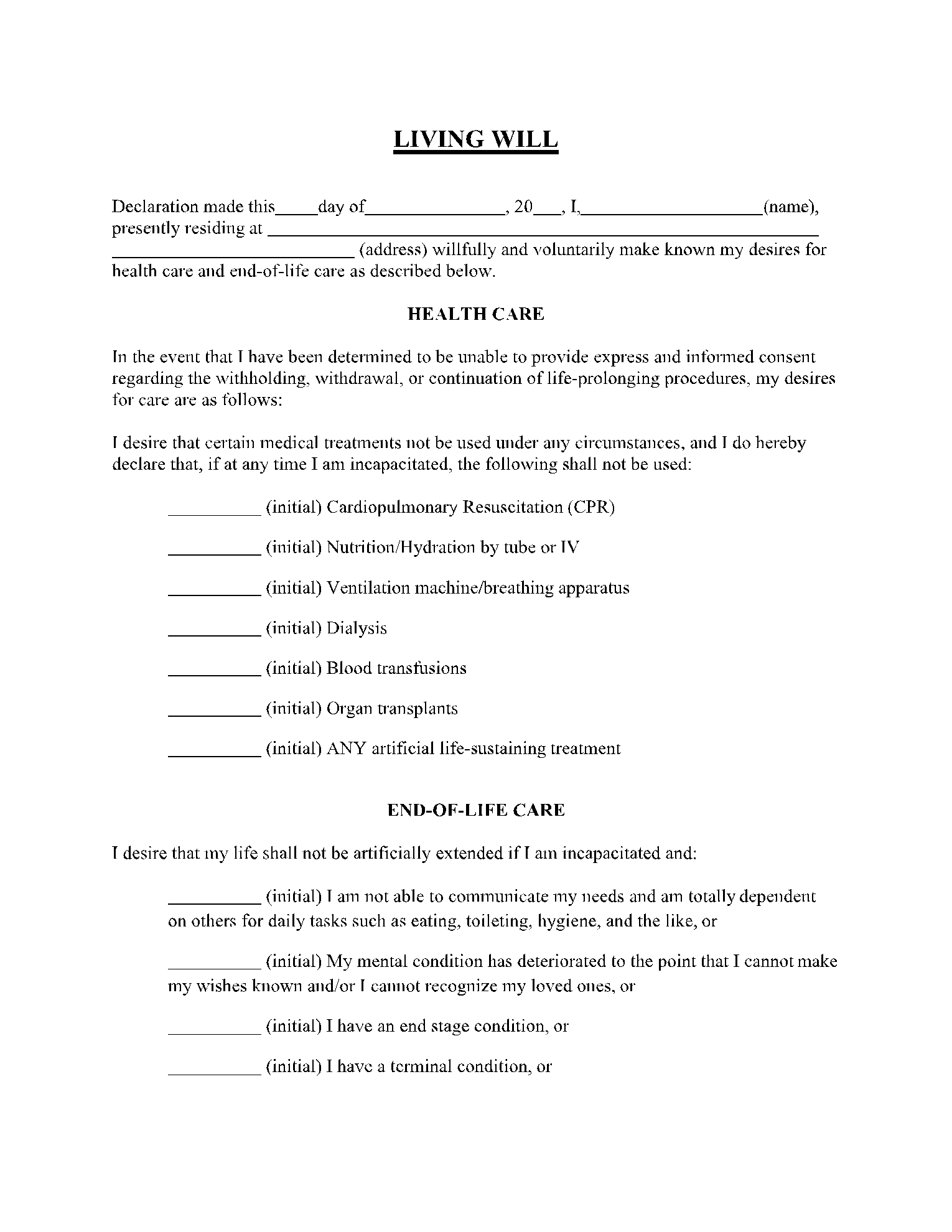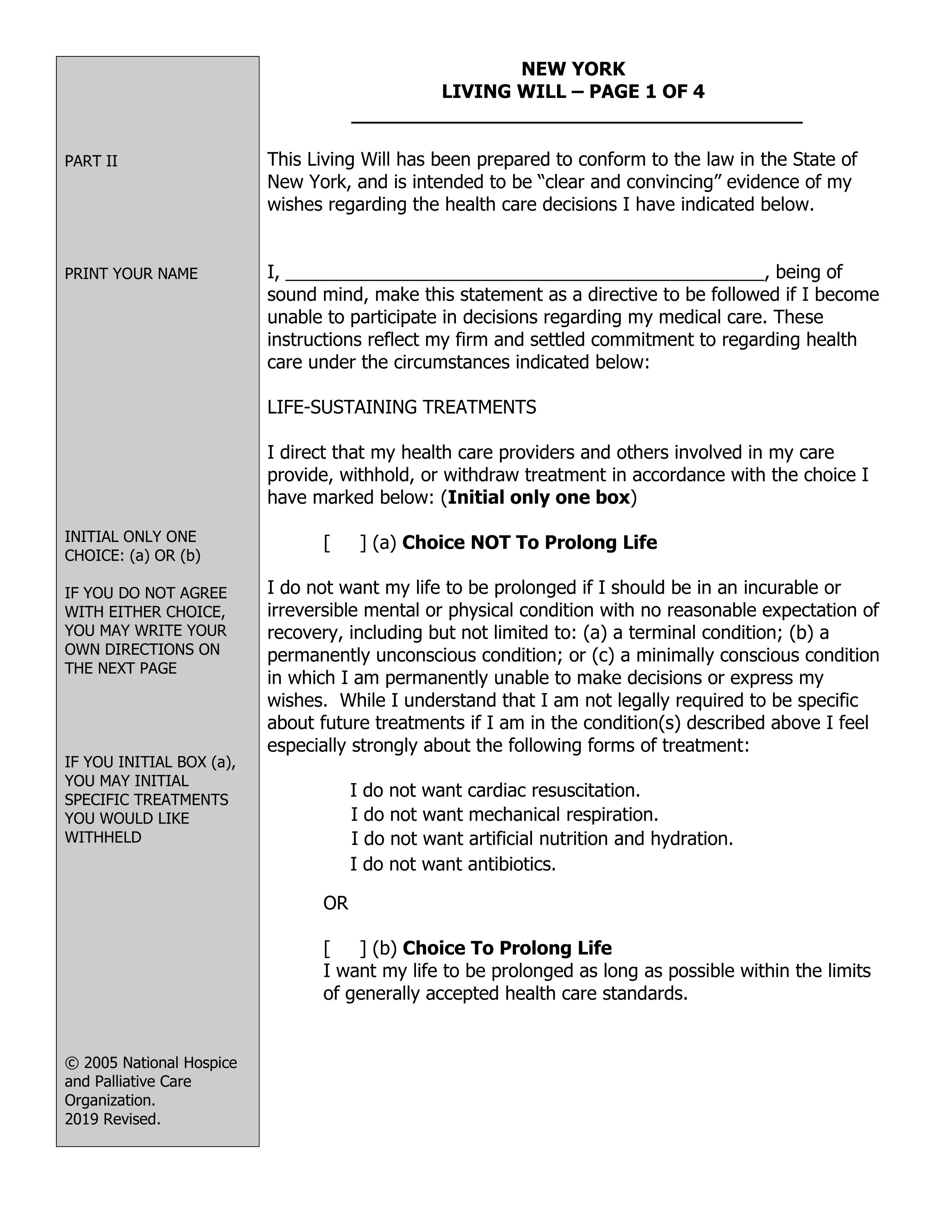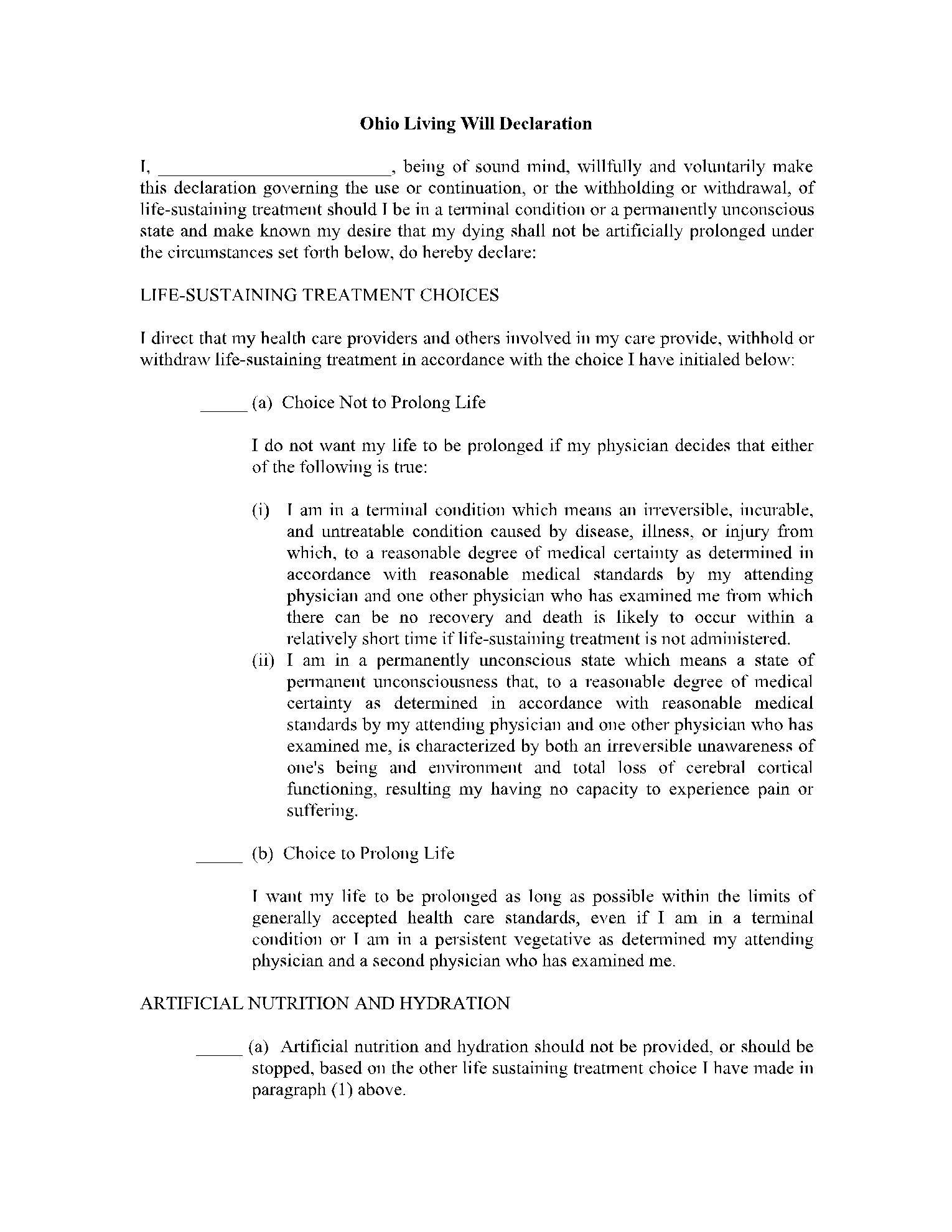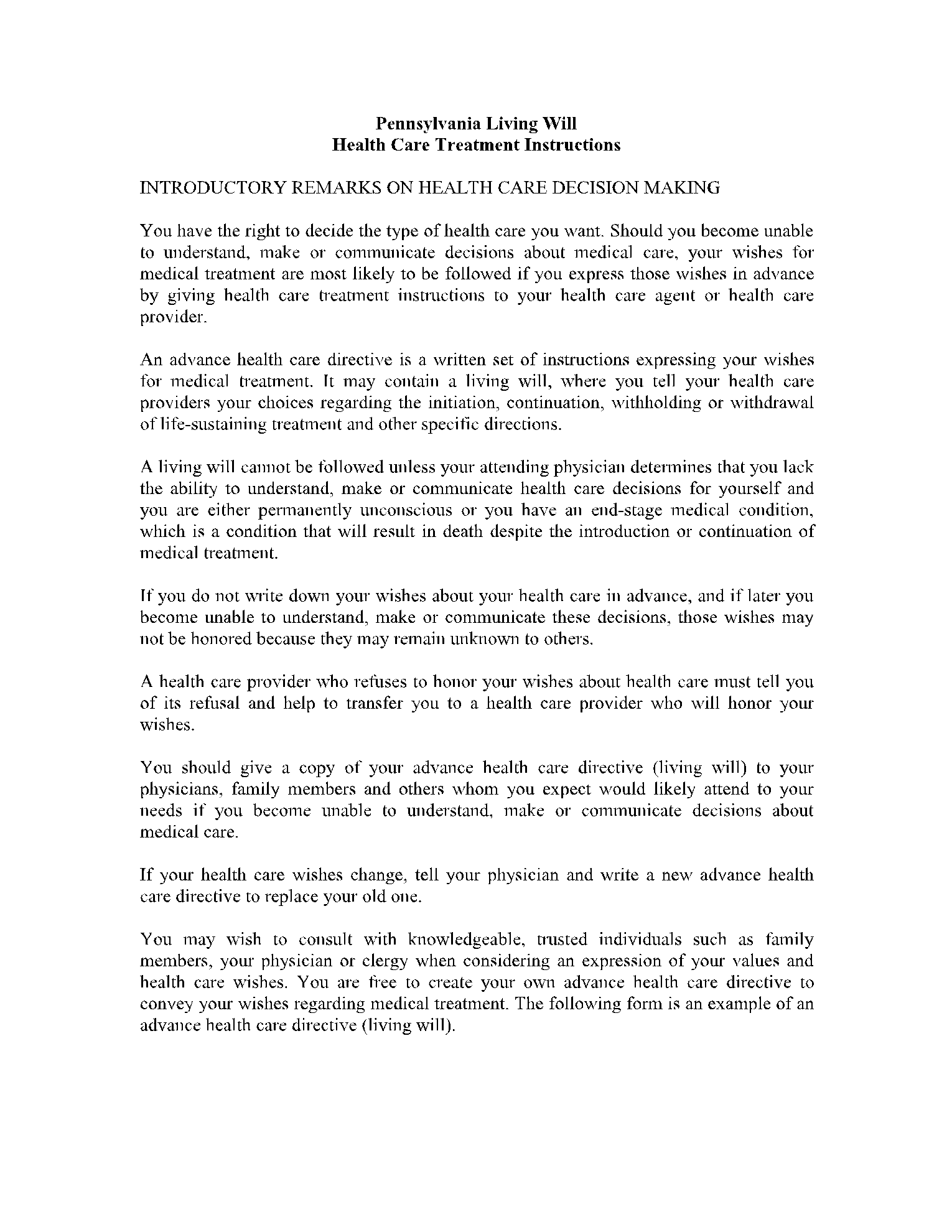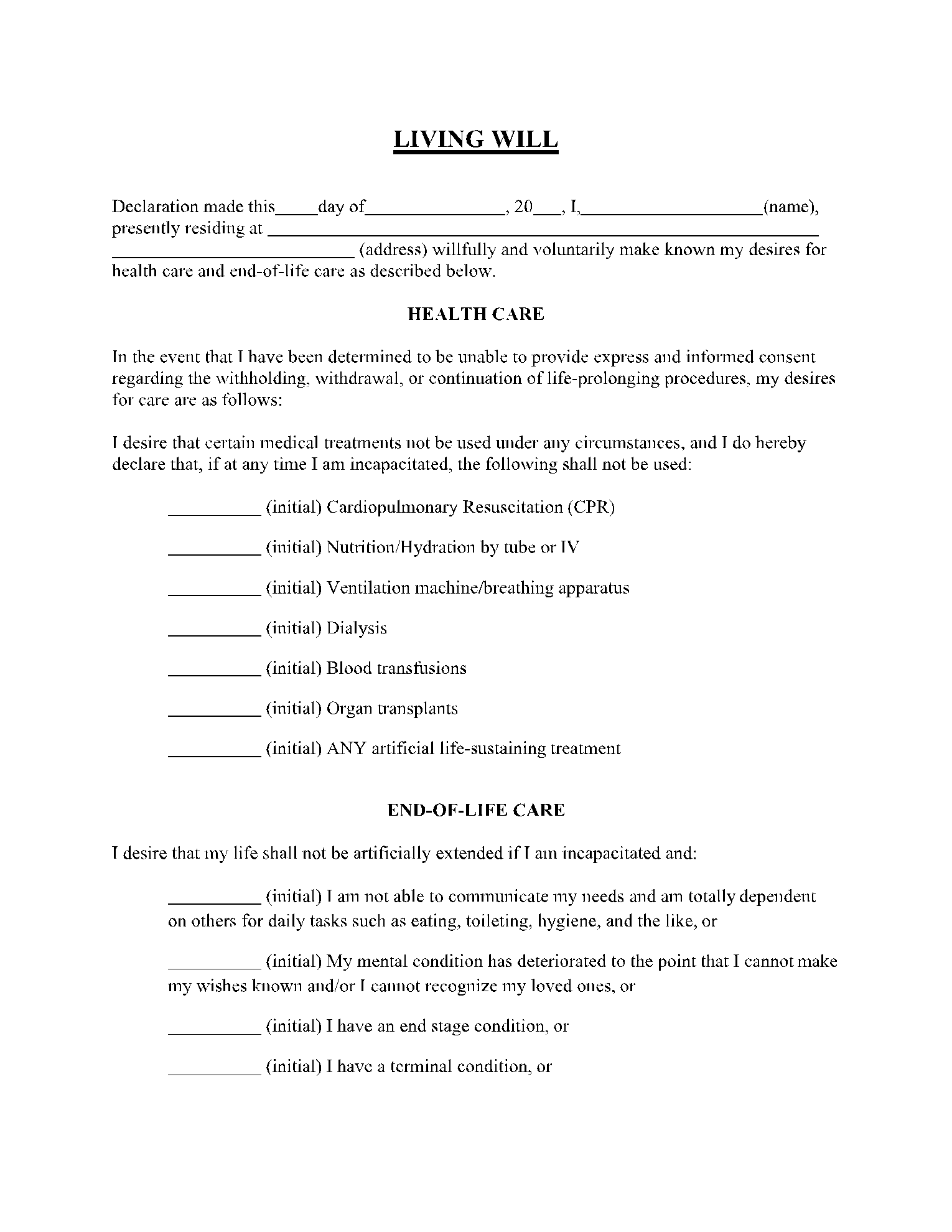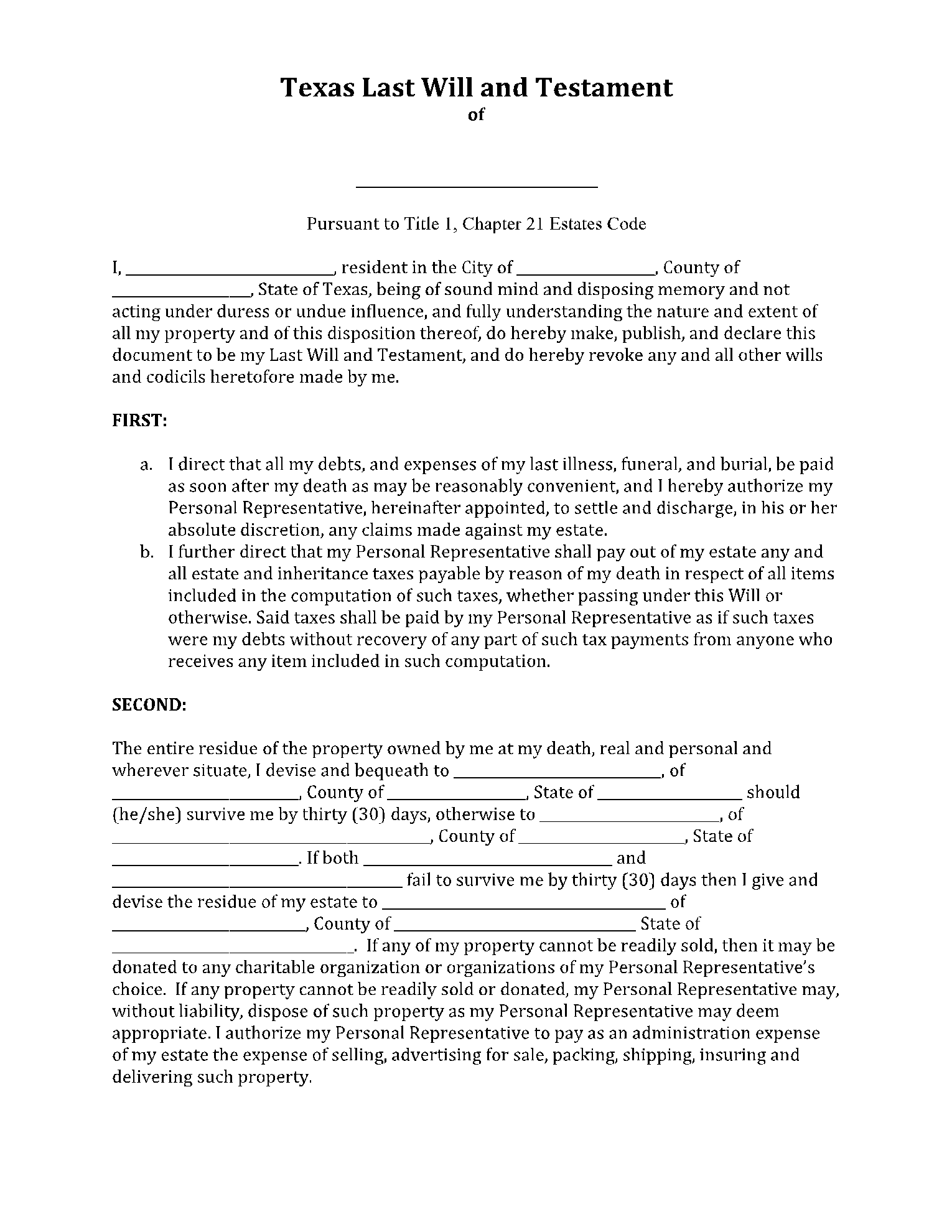Have you ever wondered what would happen if something went wrong with you? If that's the case, then you may have already contemplated making a will. The popular concept of a will is the last will that is read after the creator of the will has passed away to distribute his property to his relatives.
This isn't the only kind of will, though. The living will is one of several types of wills and does just as its name implies. It becomes operative while the maker is still alive. You’ll find tens of living will form templates here.
Why & When Is a Living Will Needed?
A living will is a written direction on what a person's doctors and caregivers are to do when the person becomes chronically ill and no longer can vocalize their desires. Alternatively, it may be referred to as an advanced directive or physician's directive. It is only applicable during the lifetime of the maker when he is incapable of making important decisions for himself but once he passes away, the document loses its validity.
One may confuse a living will with a power of attorney for medical purposes. While the former deals with the decisions of the maker, the latter means that a person is designated to make such decisions when the person who appoints him is incapable of doing so.
Making a living will while preparing one's estate simplifies future complications for one's family. It gives them and one's doctors invaluable direction to family members and doctors when a person can no longer speak for himself. Where there's no guide detailing what a chronically ill individual expects while being treated, one's caregivers end up speculating and make choices based on what they believe. They can become involved in tumultuous disagreements that may end up in court.
What's Covered in a Living Will?
A living will template normally specifies what the author is supposed to do. You can download a free living will form or living will PDF files from a reputable website online. However, you must download only those for your state as that’s what best suits you.
When one is close to dying, a living will made for such a time covers:
1. Medical and pain management options.
2. A DNR which means ‘do not resuscitate’ is an order which directs medical personnel on whether make an effort to revive you if your heart stops or if you stop breathing. A free living will assist in predetermining this.
3. Terms of an organ donation are also within the purview of a living will. If you want to donate your organs, when you're near death, the body will be kept on medication that keeps your organs intact until the necessary organs are extracted.
4. Foregoing a burial, you may donate your body to be used in the furtherance of medical studies. It is a choice that should be made part of the will.
5. Also included can be a decision stating if infections should be treated or to let them run their course in your living will.
6. If you cannot breathe on your own at the end of your life, your will may specify whether you will be given mechanical ventilation.
How to Write a Living Will?
The living will forms vary from one state to the next. One could simply employ a lawyer to make one's free living will. However, it is not difficult to create therefore some people save money by using software that is specifically tailored to their state's needs. If you live in Arizona or Florida, for example, you can download an application that describes a way to make a living will Arizona or a way to make a living will in Florida.
If you elect to create a living will on your own or with the help of your lawyer, you must first choose your recovery options in a situation whereby a medical event occurs such as dementia, a coma, incapacitation, Alzheimer's, or some other illness to which you may be vulnerable later in life.
Following that, you'll need to determine your medical services and other aspects of the care you want in the last days of your life, and also the kind of funeral you want.
Most living will forms include a provision for a healthcare agent to ensure that the maker's wishes are carried out. This proviso is necessary for a scenario where the individual has a chance of survival, as it allows the agent to opt-out of the desire stated by the person in the living will.
In the presence of witnesses and notaries, the patient may also sign the form. When using the living will form PA, like many states, it requires that there are two witnesses to witness the signing.
